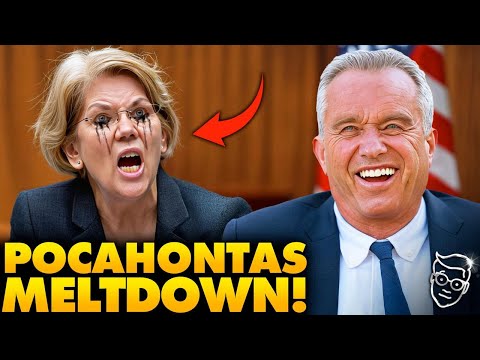It was a fascinating display in the hallowed halls of Congress where the nation witnessed a spectacle that perfectly encapsulates the contradictions of politics today. Our protagonist was none other than RFK Jr., a nominee for Secretary of Health and Human Services. The occasion provided an intoxicating blend of drama and theater, as some of our esteemed lawmakers, who claim to champion the little guy, were caught acting like they were reading from a script written by big corporations.
The Democrats have long portrayed themselves as the protectors against the menacing grip of corporate greed, but their mask slipped during this curious hearing. Here was RFK Jr., a man who simply wants our kids to enjoy their lunch without worrying about hazardous additives, facing a chorus of opposition from those who supposedly stand for public welfare. They zeroed in on RFK, challenging him on everything from his views on vaccines to his potential influence over health policies, if confirmed.
Leading this theatrical performance was the Senate Finance Committee. If anyone needed a refresher on what pure, unfiltered irony looks like, they got it here. Senator Sheldon Whitehouse confronted RFK Jr., saying, “Frankly, you frighten people.” One could almost picture RFK Jr. as the proverbial calm cat amidst the storm, as Whitehouse hurled his points with a gusto befitting a more exaggerated meme than a congressional hearing.
Of course, this incident sparked a cascade of reactions. Many average viewers found the scene jarring enough to prompt a reevaluation of their political allegiances. For some, this hearing was the final straw, a tipping point pushing them to reconsider their established loyalties. Watching RFK Jr. hold his ground was empowering for them; his calm demeanor cut through the cacophony like a refreshing breeze in the midst of a whirlwind, where chaos and order danced a vertiginous two-step.
As the dust settles, the spectacle leaves us with much to think about. It’s a potent reminder of political realities, where the lines between rhetoric and action often blur in fascinating ways. It raises questions about who truly benefits from the decisions made in those echoing chambers and just how much influence voters wield once the campaign trail cools and real decision-making begins. The story of this hearing is just one chapter in a much larger narrative. One where actions and alliances speak louder than the catchy soundbites often flashed to the public.



